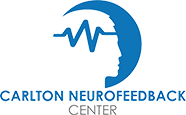Children and adults diagnosed with Autism Spectrum Disorder (ASD) or Asperger Syndrome may exhibit many different symptoms. They tend to center around issues with communication, social interaction, repetitive behaviors, and mood disorders, such as hyperactivity or anxiety. Scientists are unsure of the exact mechanism for why autism develops. Still, they do know that autistic brains exhibit structural differences and that these differences may account for symptoms that autistic children and adults experience.
How are autistic brains different?
Neurological research is advancing every day. Some scientists believe that autistic brains are less connected from front to back. Others point out that there is, in fact, too much symmetry in the brain, which makes it easier for an autistic person to pick up fine details but not the broader picture of what it all means. Additional research suggests that the brain’s normal process of pruning neurons may be impaired, resulting in too many neural pathways. No matter which theory or combination of theories adds to the puzzle of why autism develops, what is clear is that this neurological disorder involves brain wave imbalances.
Can autism symptoms be improved?
Yes. While we may not be able to cure the underlying cause of ASD, we can help individuals harness the neuroplasticity of their brain to build new neural pathways, creating new balance and coordination among the different brain areas, which results in improved outcomes in all areas. Neurofeedback therapy, when used to help a child, teen, or adult with autism or Asperger Syndrome, can result in the following improvements:
- More stable moods, with fewer outbursts
- Easier time sleeping
- More cooperation in and out of school
- Decreased anxiety, hyperactivity
- Improved attention span, better retention of new material
- Communication improvements
Are there research studies that support neurofeedback therapy?
A number of studies and case studies show that neurofeedback therapy, a type of biofeedback therapy in use since the 1970s, can be helpful for those with autism disorders. The following are links to three studies: 2002 (Jarusiewicz), 2008 (Coben and Padolsky), and 2015 (Zivoder et al.). Coben and Padolsky’s 2008 study showed an 89 percent success rate, meaning that most of their 37 research subjects reported improvements in their autism-related symptoms due to neurofeedback training.
Schedule your free assessment.
If you are wondering if neurofeedback might be right for your child or loved one, contact Dr. Ed Carlton for a free, no-obligation evaluation in Manassas, Virginia. He will meet with you personally to go over the process and how long it might take and to answer any questions you may have about neurofeedback and brain mapping.
Customized brain training protocols ensure that the training your child or loved one receives is tailored to their unique needs. Best of all, the results of neurofeedback therapy are long-term, as the brain continues learning and improving over time, possibly eliminating the need for mood-altering medications.


